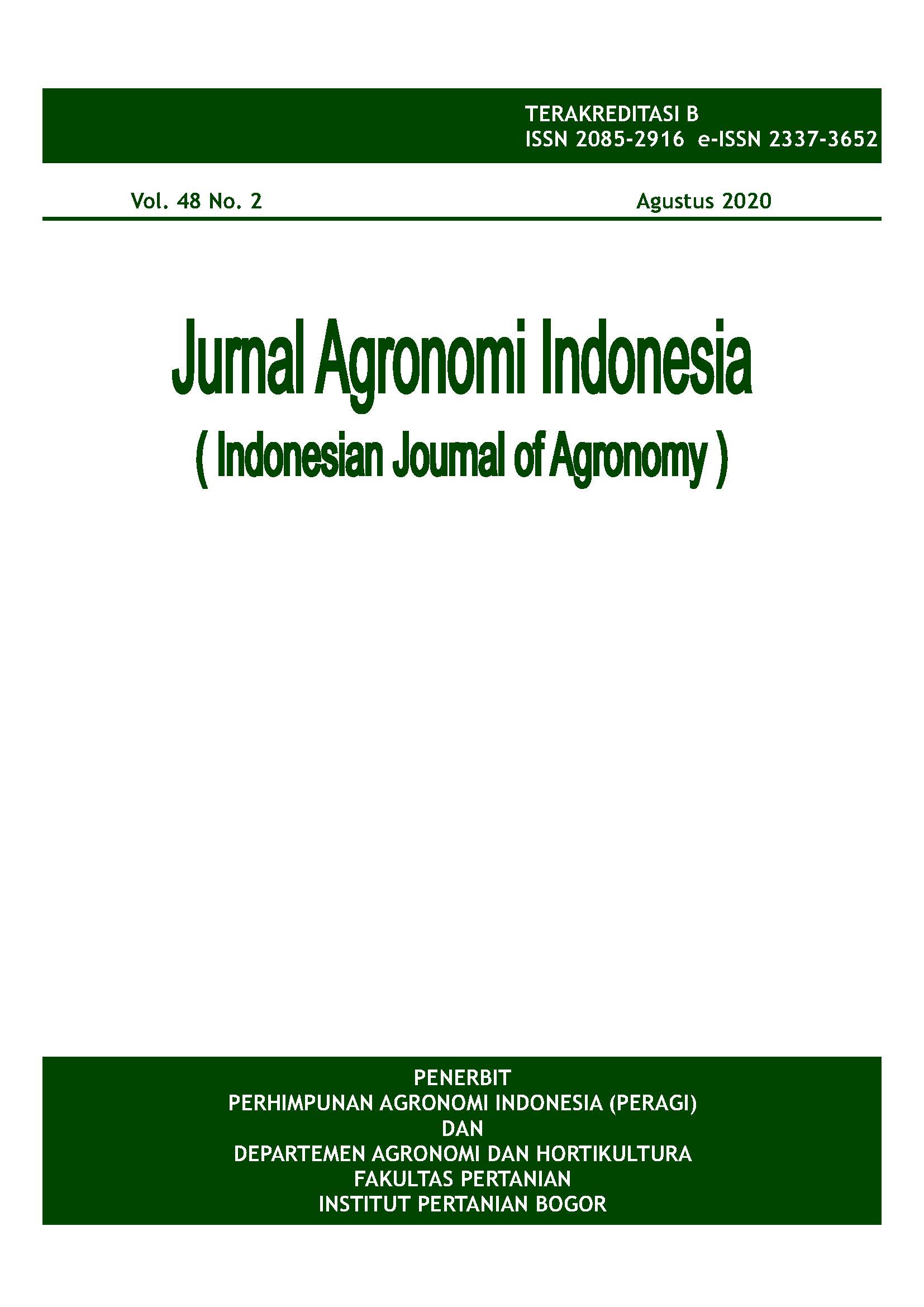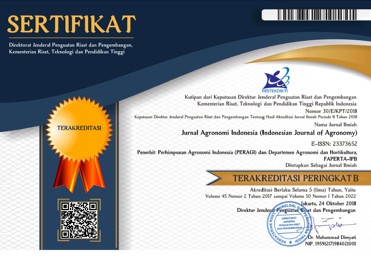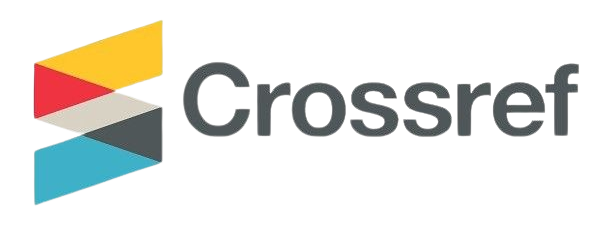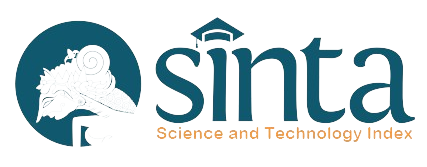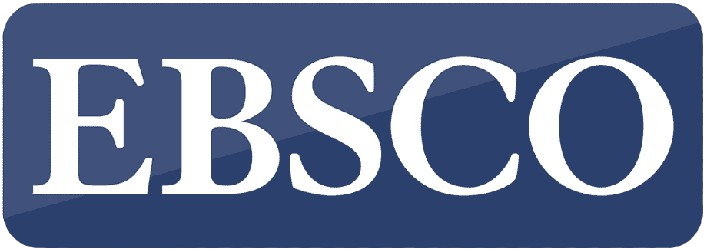Efisiensi Penggunaan Pupuk pada Sistem Pertanian Terpadu Minapadi
Abstract
Rice-fish farming is a model that is considered suitable to be applied in rice fields, both on a large or limited land as long as water availability is sufficient for rice and fish to grow. In rice-fish farming, there is integration between fisheries and agriculture where integration can improve the efficiency of the supply and use of fertilizer and feed. The research aimed to find the reduction of inorganic fertilizer in integrated rice-fish farming with the rice-fish system to increase fertilizer efficiency. The experiment used a single factor randomized block design with five levels of treatment, which are; rice monoculture with 100% inorganic fertilizer, fish monoculture, rice-fish farming with 100% inorganic fertilizer, rice-fish farming with 60% inorganic fertilizer, and rice-fish farming with 20% inorganic fertilizer. Rice-fish farming could reduce the application of inorganic fertilizers through complementary relationships between rice and fish. Applying inorganic fertilizer 20% of the reference dose in the rice-fish farming produced productivity that was not significantly different from the rice-fish farming fertilized with 60% and 100% of the reference dose, and the rice monoculture with 100% of the reference dose of inorganic fertilizer. Rice-fish farming could save 80% of inorganic fertilizers so that increasing the efficiency of using inorganic fertilizers. Fish survival and fish weight in rice-fish farming were not significantly different from fish monoculture.
Keywords: inorganic fertilizer, monoculture, productivity, soil nutrients

